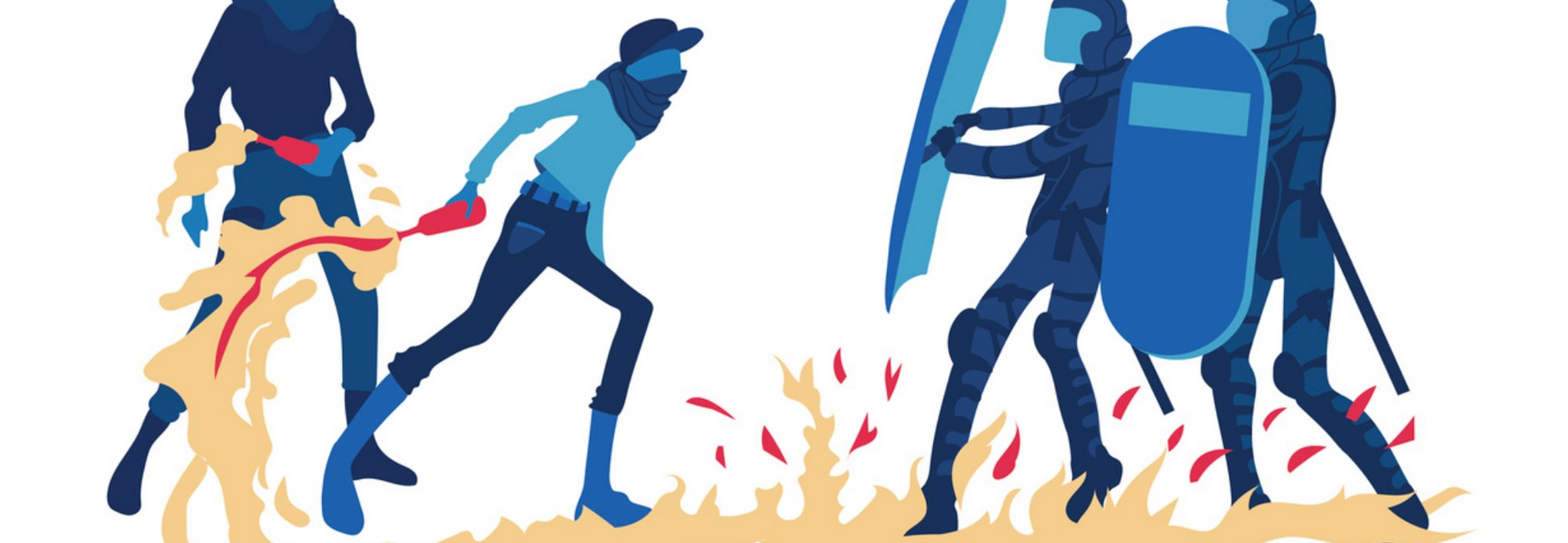
A colleague recently recommended a great classic clip by John Cleese on the benefits of extremism. Please have a look…
As Mr. Cleese insightfully points out, the primary benefits of extremism consist of:
- Providing moral justification for otherwise immoral behavior
- The promise of easily obtained self-worth derived from simply adopting the “correct” ideological views
- Projecting blame for all of one’s fears, failures and/or insecurities onto an external threat (usually a group of people)
Political extremism recurs frequently in human history because it is deeply appealing on a psychological level. Extremist ideologies typically offer an idealized and heroic self-image for one’s own group and a wholly evil enemy to struggle against. Usually accompanying this dynamic is the corollary belief that the suffering of one’s group in the present can be escaped, once the external threat (usually the rival enemy group, ideology or culture) is eliminated. We are good. They are bad. Eliminate the bad people and the world will be good.
This is incredibly alluring, and incredibly destructive.
None of us is immune to the danger of extremist ideologies – if not as active promoters, then at least as passive supporters through our silence or inaction. The extremist psychological dynamic appeals to our base survival drives as well as to our blissful and imaginative capabilities through the promise of ideological utopias and the escape from suffering.
These powerful psychological forces crowd out our more subtle and self-reflective capacities, nuanced reasoning and compassion. This is how extremist ideologies and subcultures turn an otherwise kind and reasonable person into an irrational zealot, rioter, political thug or terrorist.
In the US, Europe, the Middle East and around the world, we are entering a time of increased extremism. In order to help those we care about most, and to keep a close eye on ourselves, consider the following advice drawn from the emerging social science of restorative practices:
- Separate the deed from the doer. Disapprove of and reject behavior that does not meet moral and communal standards. Do not reject people as individuals, deny their inherent worth or their capacity to change.
- Respond to wrongdoing, and even hate, as harm done to real people and relationships. This requires practices such as restorative conferencing and restorative questions that empower direct stakeholders and recognize the role of emotion in the wake of harm and trauma.
- Always leave a path for wrongdoers, offenders and zealots to rejoin the community with appropriate admission of wrongdoing, remorse, willingness to face the harm they caused and give credible assurances of future safety or improved behavior.
None of the above is guaranteed to work in all cases. There are no utopias. Some people will refuse to change, will not face their crimes or will otherwise insist on remaining mired in ideological delusions about themselves and others. There will always be those from whom the rest of society must be protected – whether in the short or long-term.
However, the above advice does recognize that change is indeed always possible. There have been many who have committed horrible acts in human history. There have also been those who have turned away from monstrous ideas and set themselves on the path of humility and restoration with their community.
We cannot eliminate the appeal of extremism to the darkest parts of the human psyche. We can, however, retain our communal dignity, reason and humanity in our responses to it.
